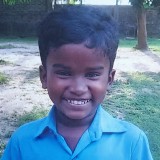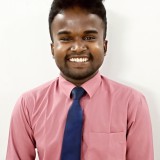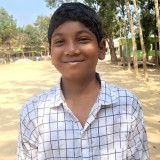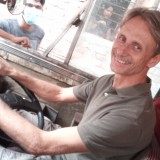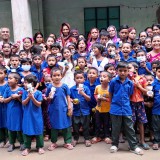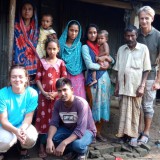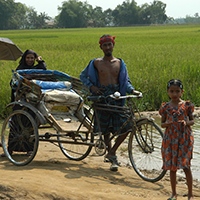When the orphan starts to call you Daddy
For 25 years, ADRA's BanglaKids programme has been helping children from the poorest families in Bangladesh get an education and hope for a better future. What is it like to run this project and what is life like in one of the world's poorest countries? We spoke to the head of the BanglaKids programme, Kamil Kreutziger, who also supports three children in Bangladesh with his wife.
Kamil, you lead a child sponsorship project in Bangladesh. Why there?
Bangladesh is one of the most populous and poorest countries in the world. 3.7 million children do not go to school because of extreme poverty. In 1999, dentist Milan Moskala started helping street children in the capital city of Dhaka, and thanks to Alena Rusova and many good people in our country, we started helping children in what we now call BanglaKids programme. Supporting children from poor families actually saves their lives and opens the door to a better future.
Do you sponsor a boy or girl yourself?
Yes, my wife and I are sponsoring three beautiful children in Bangladesh. With a bit of exaggeration - a singing pastor, a spirited Indian girl and a skilful footballer.
The first is Ronjon, an orphan. We started supporting him 14 years ago, when I was not yet working in Adra. Today he is 22 years old. He sings beautifully and is studying theology. He is such a pure soul, he gets up every morning at 4 o'clock and communes with God. He learnt English for me so we could communicate and we have already met 10 times in Bangladesh! He calls me "daddy", which hasn't been easy for me, but I've accepted it. Sometimes he needs encouragement, sometimes direction, sometimes just to share. He makes us happy.
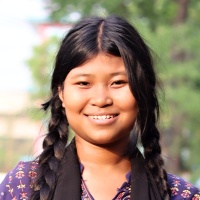
The youngest is Drisho, he will be 13. His mother died, she had a weak heart. And his father left him, so he grew up with his grandmother. We've only met once, but he plays great football, he's really smart. He wants to be an engineer, so we'll see. Maybe he'll take after me. :)
It's natural for us to give and share. In fact, I can't imagine it any other way. And in the valleys of life, our children have supported me. I know it makes sense.
How often do you visit Bangladesh?
Usually once a year, in spring or autumn. We arrange cooperation with partner organisations and teachers, visit schools and children, prepare various support projects, check finances. It's intense and wonderful. There was a time when I was thinking of moving over there.
What does your work in the Czech Republic involve?
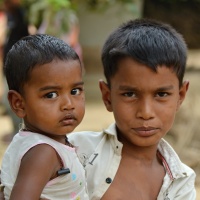
One of our colleagues says that there is a slow pace of work, a fast pace of work and then an ADRA pace. It's definitely the most intense work I've ever done in my life.
Getting people to support children in Bangladesh is not easy. It's a long-term commitment. But as one of our donors says, "I can't miss the money I've chosen to give. You can't miss something you don't have." And it makes sense, no question.
Is it easy to raise money for this project?
It is difficult. We appreciate every single donor. It's great when companies get involved and maybe people in the department chip in for a school child. That's very nice.
But it's much harder to raise money for operations. People are happy to support a school child, but few realise how difficult it is for us. Sometimes I wish a smiling man would come along and say: "I like what you're doing, here's what you need for operating costs."
By operating costs, I mean office rent, salaries for our mini team including a coordinator who communicates with donors and schools in Bangladesh, IT development, charity and fundraising events, phones, donor materials, etc. All this is needed to help the children.
Poverty in Bangladesh can be seen at every turn. What does it look like? I don't think people here can imagine it.
.jpg)
They can't. They would have to experience it for themselves. To walk down a crowded street in Dhaka, to go to a slum, to visit a textile factory, to see children sleeping on the street in heavy traffic, to feel the arm and the urge of a beggar, to see a desperate mother putting her baby on the pavement and a box next to her into which people throw money while she tries to work somewhere...
For many parents, their children's education is not a priority. If a child can contribute to the family budget through work, begging, early marriage or other means, they won't send them to school. Ideally, if the school also provides meals for the child, it is a great relief to the family. And that's what we do.
What other problems do you face apart from funding?
These are mainly drop-outs. Often the reason is illness or death in the child's family, a move or divorce of the parents. These are sad things. It is sad that some donors do not continue to support another child. There are millions of children in need in Bangladesh.
But the hurdles are certainly outweighed by the joys. What are the happiest experiences you can remember?
There are many. For example, when a child graduates, becomes a nurse or a manager, and comes to show a partner and children the joy of seeing them flourish. Or when a teacher we were saving up for a kidney transplant beams with happiness and is the best teacher in the area. Preparing articles and photo galleries from monitoring trips often moves me. It makes me relive all the encounters and sometimes even more deeply. I love the children and enjoy watching them grow.
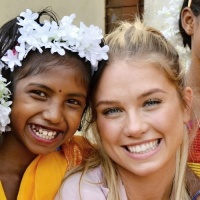
And I'm also very happy when someone supports us, like the influencer MENT, who went to Bangladesh with our ambassador Justyna. Thanks to his outreach, a lot of donors were inspired.
3 years ago, the kayaker Vávra Hradilek supported us with a great feat, we paddled down the Ganges. At the moment we have another crazy idea in our heads - to cross Bangladesh in a rickshaw. Riding a rickshaw is terribly difficult and we are looking for a suitable candidate. We are in contact with a number of people, so we will see if anything comes of it in 2026.
Thank you for the interview.
Interview conducted by Vít Hněvkovský, Head of PR and Fundraising
PS: We would be happy to receive any donations for the general support of the BanglaKids project.
Bank account number: 271815447/0300 (EUR)
IBAN: CZ69 0300 0000 0002 7181 5447
BIC: CEKOCZPP
Find the child you would like to sponsor here.
You can buy useful gifts for the children in our e-shop.
